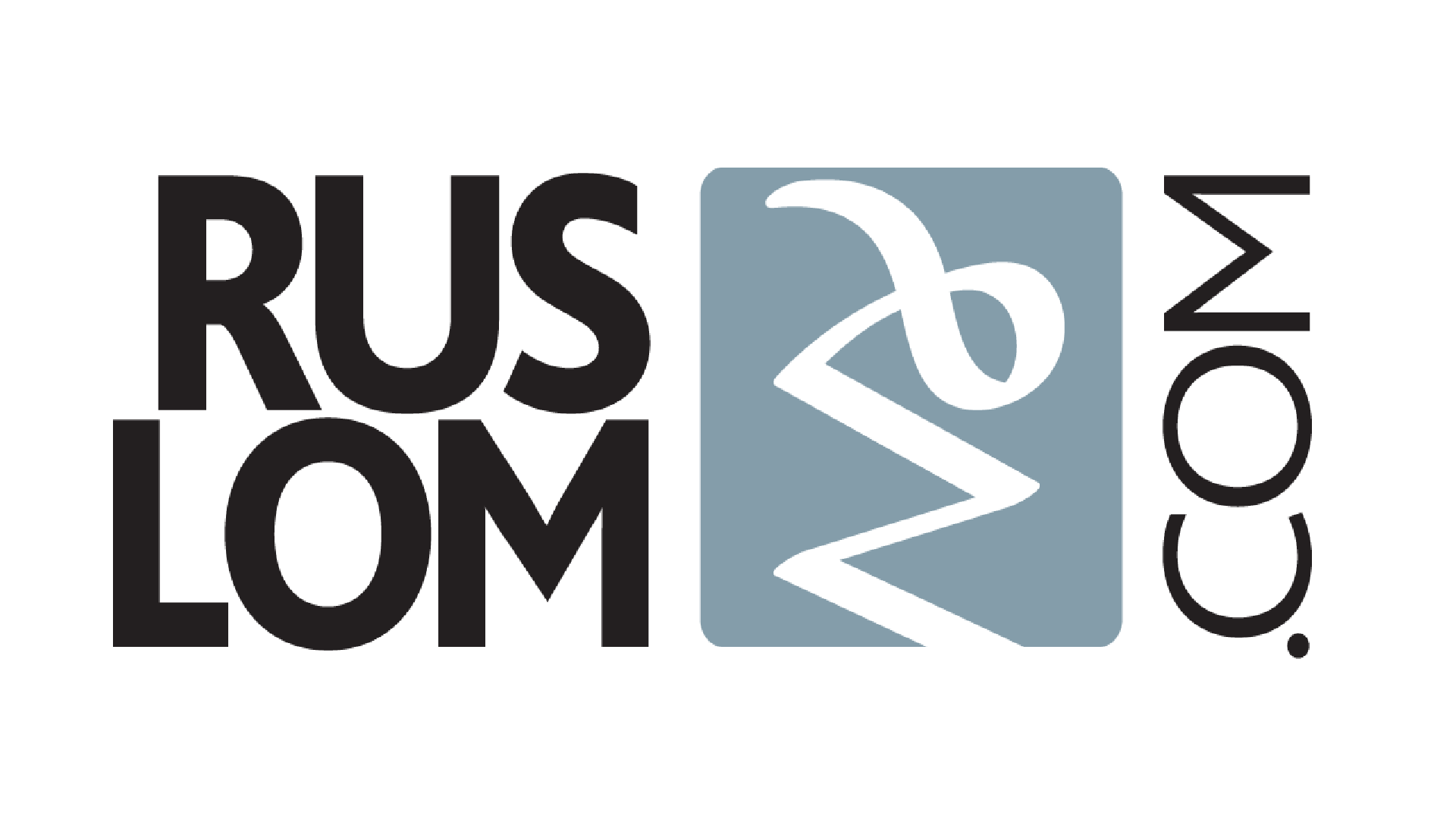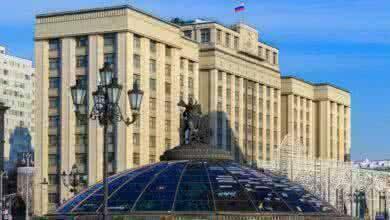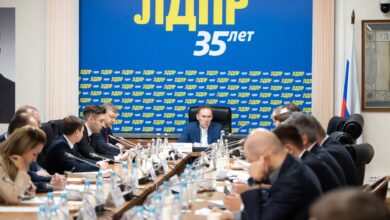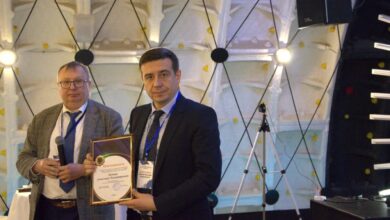
On May 30, 2022, as part of the business mission of Russian metal recycling industry entrepreneurs to India, organised by the National Recycling Association RUSLOM.COM, the Indian-Russian conference Commercial and Industrial Dialogue and Business Cooperation was held in Delhi. The event was attended by representatives of the Russian state, as well as the business community from both the Russian and Indian sides, including the Trade Representation of the Russian Federation in India, the Embassy of the Russian Federation in India, the National Recycling Association RUSLOM.COM, the Material Recycling Association of India (MRAI), leading Russian banks operating in India, such as Gazprombank, Sberbank India, Moscow Credit Bank, numerous entrepreneurs of the Indian and Russian metallurgical and scrap recycling industries.

Conference participants from both sides unanimously commented that this event became the largest business event in India since the end of the COVID-19 pandemic, aimed at establishing and strengthening Russian-Indian foreign economic relations.

‘Today, at the time of dramatic change in the global political and economic situation, the search for new solutions, opportunities in the field of international logistics and payments, the reorientation and expansion of external markets for the national products, the search for new partners in the field of foreign trade in various sectors – from mechanical engineering to waste recycling – is becoming extremely relevant for our countries,’ said Victor Kovshevny, Director of the National Recycling Association RUSLOM.COM.

The main topics of the conference were:
- analytical information and forecasts in the fields of trade and economy, announcement of Indian and Russian companies present at the event;
- development of business partnerships, primarily in the field of metals and metallurgical raw materials, waste disposal, transport and equipment, and other sectors of the economy;
- prospects for the implementation of investment projects;
- exchange of experience in the field of technologies for metal scrap and waste management, equipment for electrometallurgy, production of metal products and semi-finished products;
- development of export-import relations, logistics and new logistical chains;
- banking services and support of international financial transactions in the current conditions.

The business programme of the conference was opened with a brief introductory speech by the Director of the National Recycling Association RUSLOM.COM Victor Kovshevny and the Advisor of the Material Recycling Association of India Mr. Satish Kohli.

Next, the Trade Representative of the Russian Federation in the Republic of India, Alexander Rybas, made a presentation to the event’s participants, highlighting the current state and forecasts for the development of the Indian economy and current prospects for cooperation with Russia in various industries, as well as data on the dynamics of the country’s foreign trade. Thus, over the past year, the volume of exports from India increased from $291.1 billion to $377.4 billion, while the volume of imports increased from $393.6 billion to $549.9 billion. Meanwhile, the trade turnover between India and Russia in 2021 amounted to $13.5 billion. In 2020, this figure was $9.3 billion.
The speaker named the goals set by the Government of India to increase the output of metallurgical products in the country from 100 million tonnes per year at present to 300 million tonnes by 2030 as the most important factor determining the prospects for cooperation between Russia and India in the field of metallurgy. Regarding the declared indicators, India, which is already one of the three leading metallurgical powers of the world, will require active foreign economic cooperation, also with Russian partners.

The speaker named the top 10 industries that the Government of India prioritises and spoke about the Make in India and Self-Reliant India programmes, how these programmes, aimed at growth of the Indian economy and an increase in the country’s middle-class’s welfare (which at the moment is, according to various estimates, from 150 to 300 million people), can be useful for building mutually beneficial cooperation with Russian companies in the field of metallurgy and scrap recycling. Thus, priority attention in the above programmes is given to the development of the automobile industry (investment amount is 450 billion dollars), construction and infrastructure (investment amount is 640 billion dollars), production of electronic components (investment amount is 260 billion dollars), railroads (investment amount is 142 billion dollars) and others. All mentioned sectors of the economy are active consumers of metal, metal products, metallurgical raw materials and scrap.

While sharing with the audience the information on the investment scale of the programmes described above, the Russian Trade Representative noted that in general, the case is about 21 industries with a total investment of $4.6 trillion.
In conclusion, Mr. Rybas provided the participants with useful information about the peculiar properties one has to be aware of when entering the Indian market and negotiating with local businessmen.

Next speaker in the opening part of the conference was Alexey Afanasyev, the Counsellor of the Embassy of the Russian Federation in the Republic of India, who offered the entrepreneurs detailed information about the current state and prospects of foreign policy and economic cooperation between the two countries. The speaker noted that Russian-Indian relations of especially privileged strategic partnership were increasingly developing in all areas of the bilateral agenda in recent years. Trade and economic cooperation shows positive dynamics, despite the COVID-19 restrictions in 2020-2021 and unprecedented anti-Russian sanctions of the Western countries this year. According to the Russian Federal Customs Service, in 2021, bilateral trade increased by more than 46%, reaching $13.6 billion. The diplomat noted that at present the relevant authorities and organisations of Russia and India were actively engaged in building trade cooperation and searching for mutually acceptable ways to overcome the negative consequences for business, caused by the unilateral restrictions of the West.
The speaker urged Russian entrepreneurs to more actively develop the extremely capacious Indian market and, at the same time, provide business partners from India with a greater range of opportunities for developing mutual business by forming and strengthening horizontal ties, also via establishing joint ventures in both countries.

Further, the floor was taken by a Committee on International Cooperation of the Russian Union of Industrialists and Entrepreneurs (RSPP) member, Director of Public Relations of the National Recycling Association RUSLOM.COM Alexey Kondratyev. The topic of his presentation was ‘The Interests of Russian Business in India: A View from the Russian Union of Industrialists and Entrepreneurs’.
Mr. Kondratyev told the Indian part of the audience about the Russian Union of Industrialists and Entrepreneurs, which represents the interests of the leading players in the Russian economy in a wide range of industries and regions of the country. He also spoke about the international RSPP activity in promoting Russian business interests, including its interaction with international business associations such as B20, BRICS, the EAEU Business Council, the North East Asia Business Association, the APEC Business Advisory Council and others. The speaker emphasised the strategic cooperation of the National Recycling Association RUSLOM.COM and the RSPP, which was reflected in a number of projects, including the publication of a special issue of the RSPP magazine Business of Russia in 2020, which was dedicated to the metal recycling market, as well as RUSLOM and RSPP’s mutual input in organising a business mission of Russian metal and metal scrap industry entrepreneurs to Hungary in October 2021 and a business conference on Russian-Hungarian business cooperation in Budapest.

The speaker named a number of specific areas and projects of foreign economic cooperation with India, where RSPP member companies have proposals to partners in India, which aroused the legitimate interest of the audience.
The Director of the Material Recycling Association of India (MRAI) Mr. Ritesh Maheshwari as the next speaker on the agenda spoke about the activities of the Association in India and its achievements in the interaction with the Indian government, including the abolition of import duties on ferrous scrap to India two years ago. MRAI was founded in 2011 as the Metal Recycling Association of India. As a result of its rapid development this metallurgical industry organisation turned into a full-fledged multi-industry recycling association, possessing the support of the Indian government, which instructed it to address recycling issues, not limited to the metallurgical sector. Currently, MRAI has more than 1,200 members engaged in recycling, including metals, plastics, paper, waste and e-waste, tires and rubber, glass, automobiles, construction and demolition, and water treatment. Mr. Maheshwari spoke about the process of processing ferrous and non-ferrous scrap in India.

The National Recycling Association RUSLOM.COM Director Victor Kovshevny’
s report on cooperation between Russia and India in the field of metallurgy and scrap processing was met with great interest.
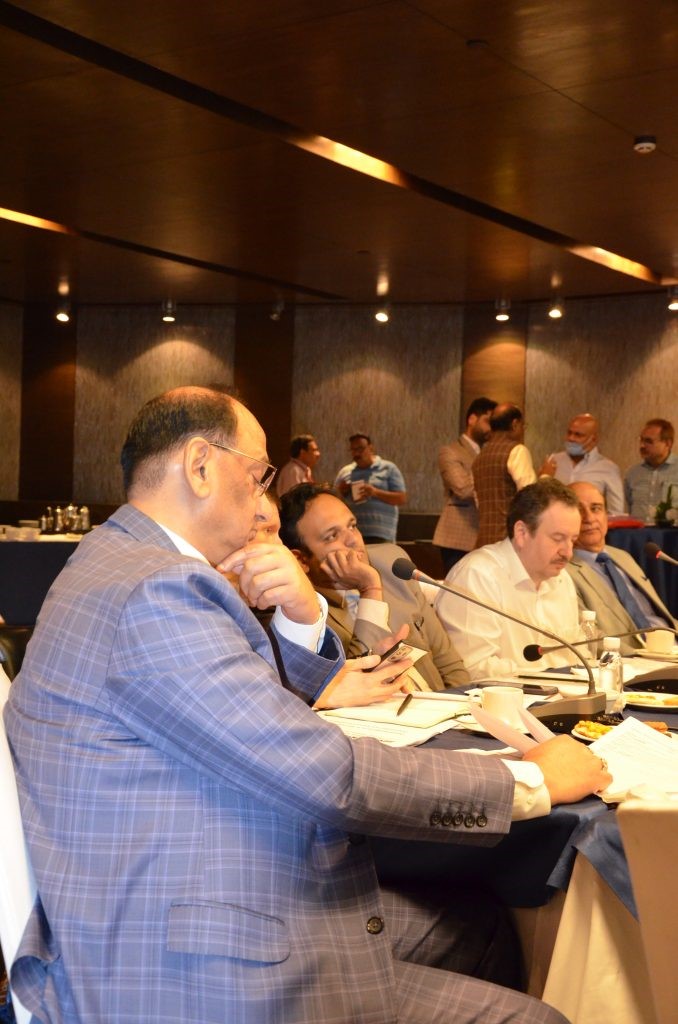
The speaker, with regard to the impact of scrap metal on the Russian market, presented data on the share of scrap in the end metal products. Thus, for carbon steel, this share is 44%, for copper and aluminium it is 48% and 30% respectively. The proportion of scrap metal in stainless steel reaches 100%, while in other metals it varies from 20% to 80%.
In addition, Victor Kovshevny spoke in detail about the potential of the scrap market. It is noteworthy that the efficiency of ferrous scrap collection, estimated at 62% in 2021, will fall to 42% by 2025 and will start to recover after it. According to the above estimates, by 2035 it will reach approximately 66%. A similar picture is actual for copper and aluminium scrap. The efficiency of collecting copper scrap will decrease from 62% in 2021 to 43% in 2025, and by 2035 it will return to the level of 61%. The efficiency of aluminium scrap collection will decrease from 58% in 2021 to 43% in 2025 and recover to 58% by 2035.
The Director of the Association, together with his colleague from MRAI, formulated one of the most sought-after areas of cooperation between the two business associations. It is joint check by the two associations of industry counterparties in Russia and India, willing to do business together. Both Russian and Indian audiences welcomed the proposal.
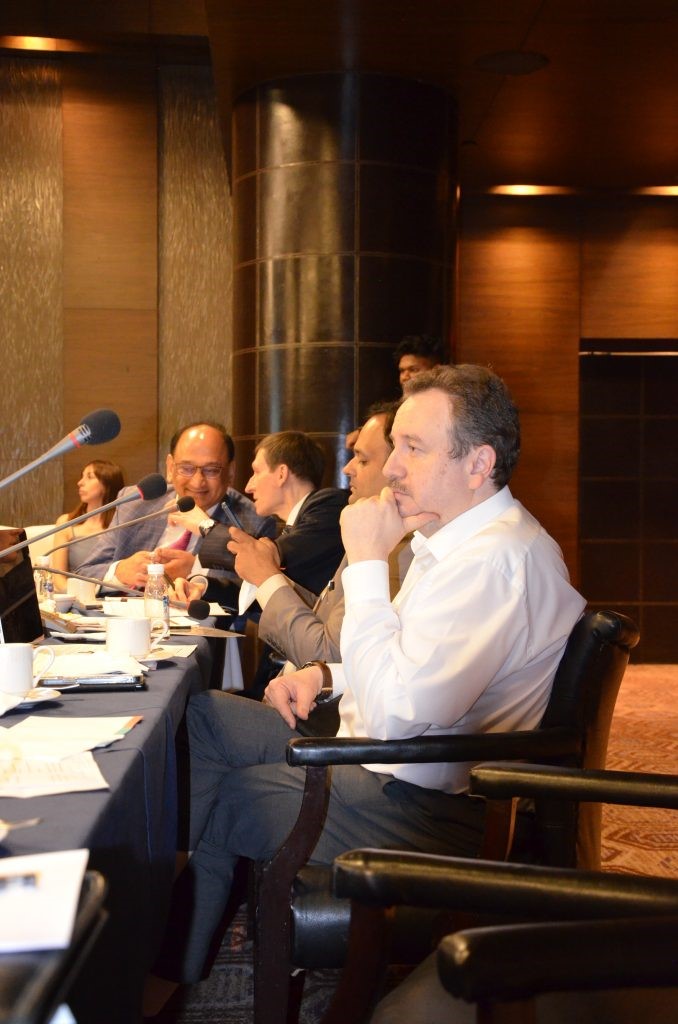
In the next block of the conference, speeches were made by representatives of the banking sector. Nikita Zhvachkin, Head of Corporate Clients and Financial Institutions at Sberbank India, spoke about the possibilities of Russian-Indian business cooperation from the point of view of Russian financial institutions represented in India. In particular, the speaker emphasised the possibility and advantages of servicing bilateral contracts denominated in national currencies, by Sberbank India.
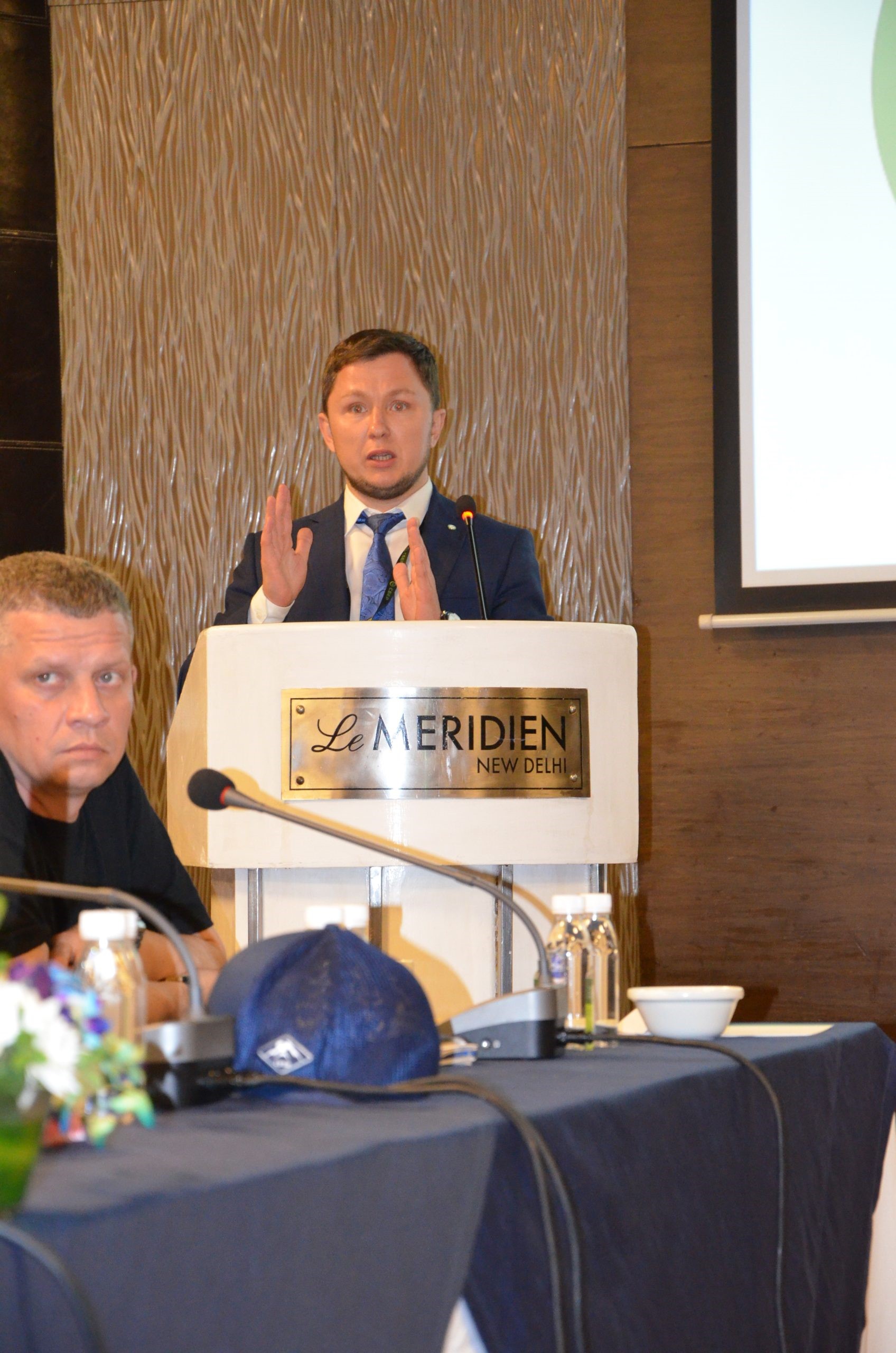
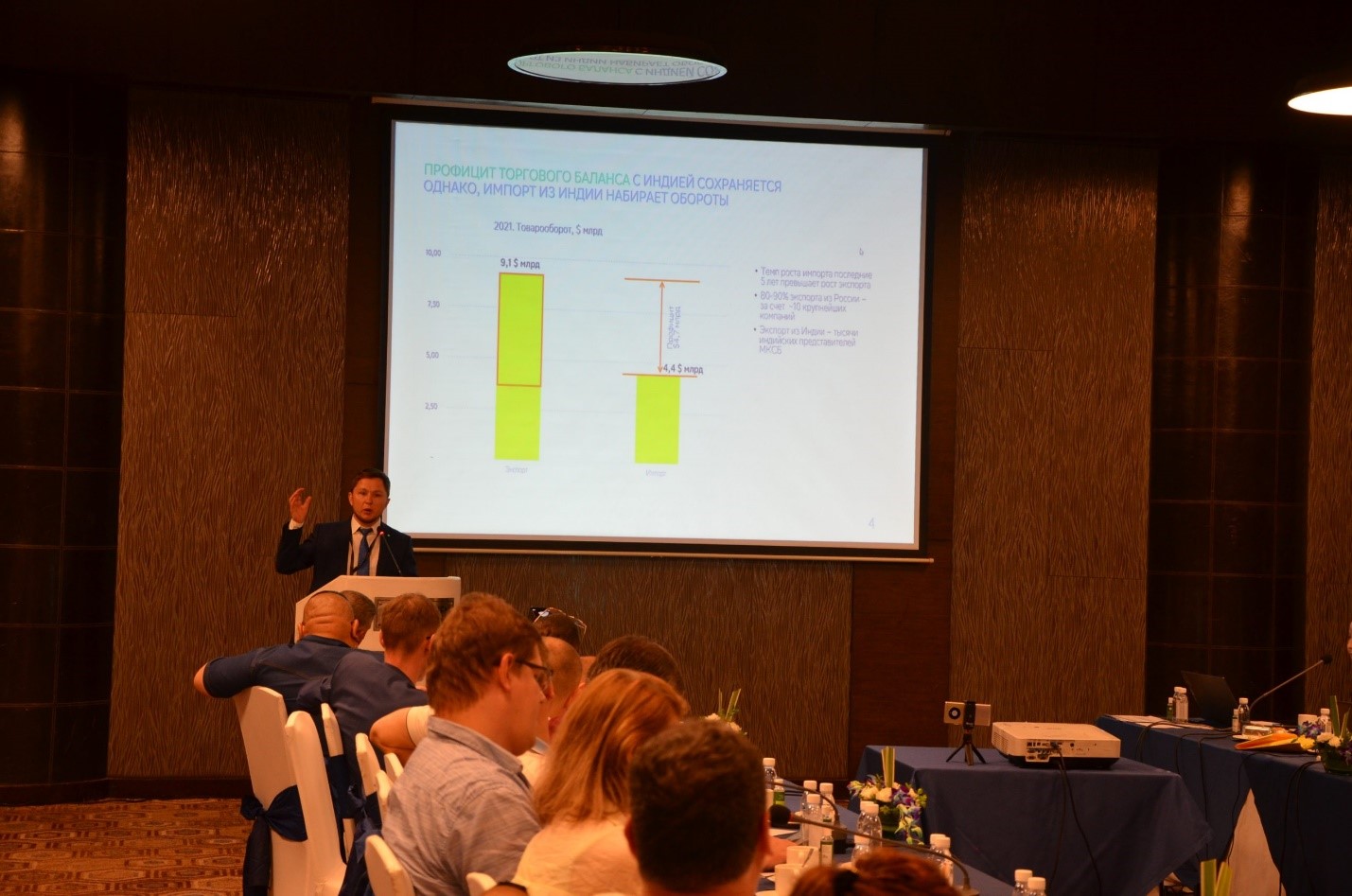

The next presentation was made by Sergey Mitreikin, Head of the Gazprombank Representative Office in India. The speaker highlighted India’s growing role in the global economy. Thus, according to the IMF forecast, it will become the fastest growing major economy in the world in 2022. And if the growth rates maintain, by 2030 India will take 3rd place among world economies in terms of nominal GDP. The Indian market is complex and risky, but has almost unlimited potential for those who can master it.
In his speech, Vice-President of Moscow Credit Bank Vadim Timokhin noted that India was a strategically important partner for Russia and the bank was ready to support Russian business going to India. In this regard, among the possible initiatives are increase in the use of national currencies through joint investment programmes, attracting public funding in rupees and roubles for Russian-Indian projects and trade contracts.
The next speaker of the conference was Tribhuvan Darbari, Managing Director and CEO of Texmaco Rail & Engineering Limited, an Indian company that manufactures a wide range of products such as rail freight cars, hydromechanical equipment and industrial structures, locomotive components and bodies, steel beams for railway bridges. In turn, Texmaco Defence Systems, where Mr. Darbari also holds the position of Managing Director and CEO, implements important projects in the country’s defence industry complex.
According to the speaker, India is the second largest steel producer in the world with a production volume of 108 million metric tonnes. The target capacity of the country’s steel industry is to reach 300 million metric tonnes by 2030. In this regard, scrap metal is playing an increasingly important role, as its use has become an integral part of the modern steel industry, increasing the industry’s economic efficiency and reducing the environmental impact. Nearly 40% of world steel production is made from scrap metal, reducing CO2 emissions by 58%. Processing one tonne of steel saves 1100 kg of iron ore, 630 kg of coal and 55 kg of limestone.
It is noteworthy that in 2018-2019, India imported 6.7 million tonnes of ferrous scrap, and in 2019-20, the volume of imports amounted to 4.6 million tonnes.
Mr. Sudhir Gupta, Director of Advance Hydrau Technologies, a manufacturer and exporter of scrap metal recycling machines since 1979, spoke about the company’s advanced technologies and gave a detailed presentation of current products.
Mr. Gupta noted that today the attention of the world community is focused on India as an alternative manufacturing centre. India and Russia need to forge stronger partnerships, also trade associations and joint ventures. The main obstacles for the development of Advance Hydrau Technologies in the Russian market at the moment are the language barrier and the abundance of Chinese technology.
Dmitry Stukalov, Project Manager of Rusmet Rating Agency, made a presentation on industry products and ratings of the agency. He told the audience about the history of the agency, founded 25 years ago, and noted that, since the main Western rating companies had left the Russian market in 2022, RA Rusmet remained the only domestic company providing up-to-date industry quotes in the field of metallurgy and scrap collection.
To achieve maximum reliability, quotes are formed by consolidating information from official databases of domestic sources, with due regard to daily monitoring of markets and expert assessments, using proprietary digital tools and RA Rusmet methodology. It is important that the Rating Agency’s data and conclusions are recognised by the players in the scrap market, such as the members of the National Recycling Association RUSLOM.COM, and are accepted as arguments by the government bodies (Ministry of Industry and Trade of the Russian Federation, Ministry of Economic Development of the Russian Federation, Federal Antimonopoly Service of the Russian Federation, Ministry of Natural Resources of the Russian Federation and others).
In the following section devoted to blitz presentations of Russian companies, Victor Dvorovoy, Commercial Director of Yug-Met, spoke about Technology Park Yug-Met, which is a modern infrastructure complex that hosts production workshops, warehouses, a logistics centre and office premises on its site. Today, over 10 metallurgical and scrap processing companies are the technology park’s residents.
Mr. Shubh Gautam, Chief Technical Architect of American Precoat, told the conference participants about the particular qualities of the Indian market, the need to make sound marketing decisions for Russian entrepreneurs coming to India.
A representative of Ghaziabad Precision Products, producing components for engines, transmissions and mechanisms since 1988, also spoke in the blitz presentations section dedicated of Indian companies. The company plans to expand its activities in Latin America, South Korea, Russia, Indonesia, Thailand and Vietnam. In 2025, Ghaziabad Precision Products aims to reach the $125 million trade volume milestone.
The business programme of the event ended with a gift-giving ceremony and an evening reception.
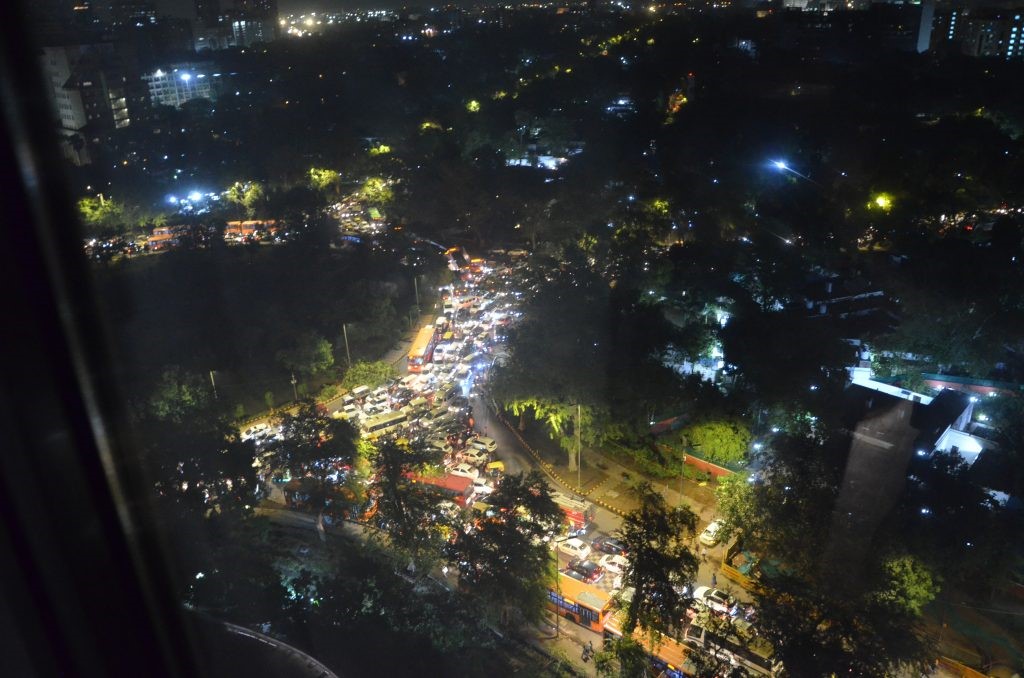
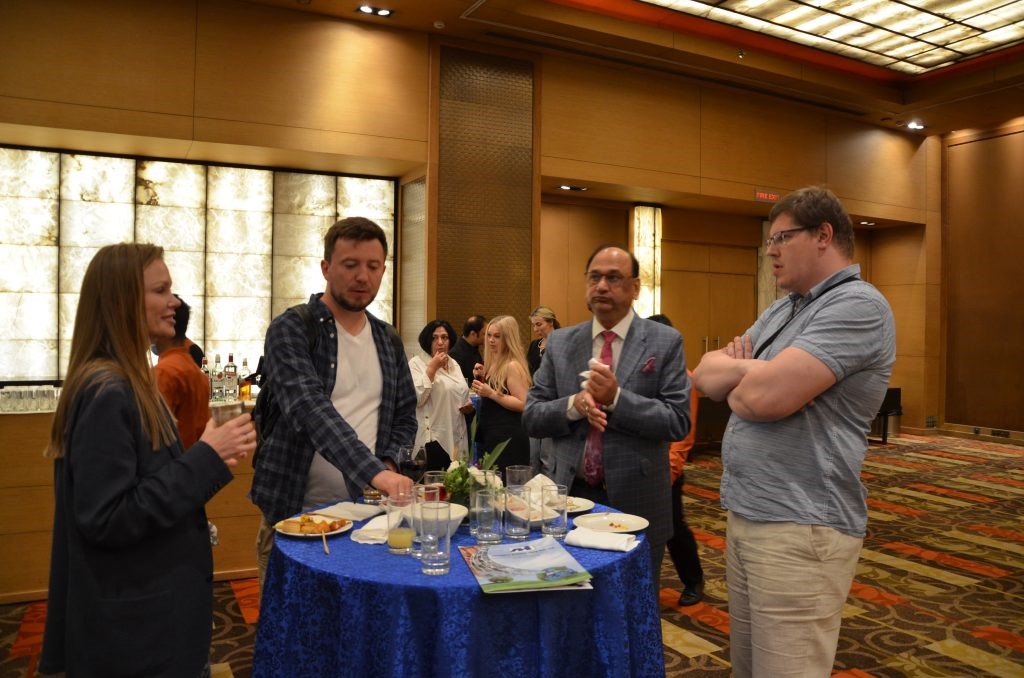
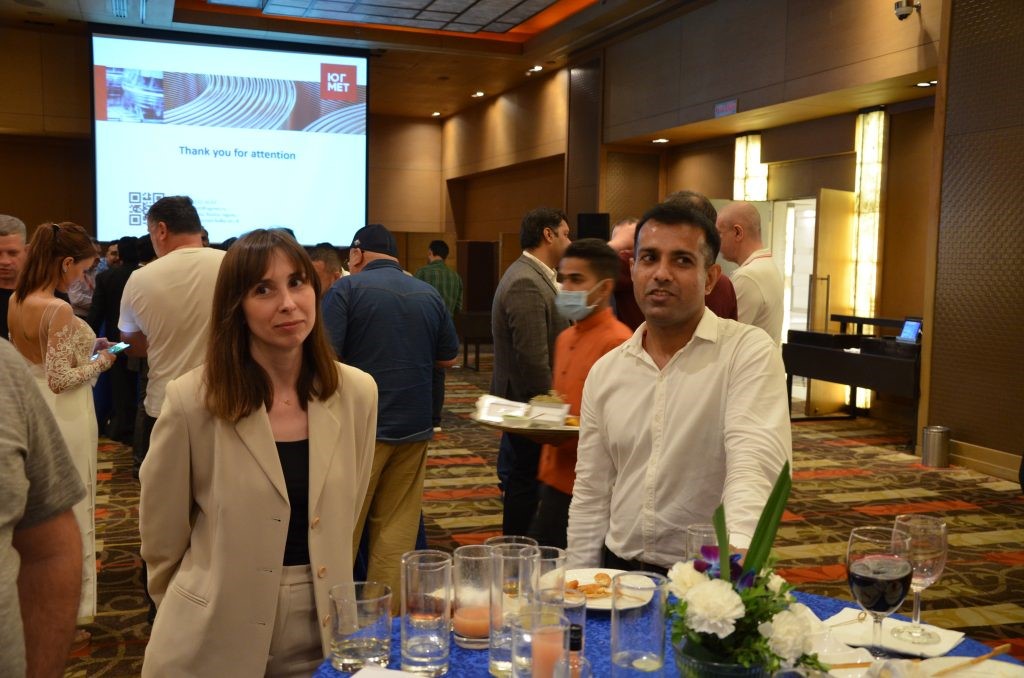
The business mission programme in India will last until June 6th. During the trip, the Russian delegation of the National Recycling Association RUSLOM.COM will meet with the Material Recycling Association of India to hold a separate industry round table and sign an agreement at the headquarters of the Indian Association in Mumbai.
In addition, visits to scrap processing and metallurgical enterprises are planned, as well as an excursion to the world’s largest shipbreaking region in Alang.
RUSLOM.COM’s activities in India were supported by its strategic partners for the duration of the business mission by the Material Recycling Association of India and Electrotherm.
National Recycling Association RUSLOM.COM is the only official industry association of scrap processors in Russia with the national self-regulatory organisation status. The Association members are more than 300 companies from among the procurement divisions of metallurgical plants, independent processors, exporters and traders, which are leaders of the market and government programmes. Members of the National Recycling Association RUSLOM.COM own 100% of the shredding capacity in Russia and 75% of the market in terms of consumption of steel scrap in Russia.
The Association’s mission is to ensure the resource and environmental security of Russia by means of returning recoverable materials to the economic turnover.
The Association’s goal is to create a high-tech metal recycling industry in Russia. Alexey Kondratyev Director, Public Relations National Recycling Association RUSLOM.COM Address: Moscow, 2nd Kazachiy lane, 11, p. 1 Tel. +7 (499) 490-49-28 Mob. tel. +7 (903) 363-5393 Email a.kondratiev@ruslom.com
